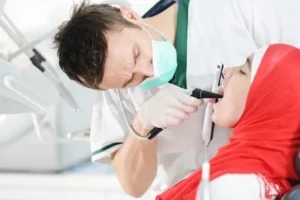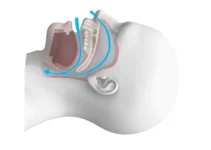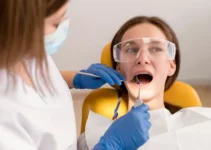For athletes, the risk of dental trauma is a significant concern due to the nature of physical sports. Understanding the right preventive measures can drastically reduce the chances of injuries. This article explores various strategies, including the use of mouthguards, proper facial protective equipment, and awareness of safe sports practices. Education on emergency responses to dental injuries also plays a crucial role in minimizing long-term damage. Learn the proactive steps athletes can take to protect their dental health during sports activities.
Importance of Preventing Dental Trauma in Athletes
Participating in sports offers numerous benefits, including improved physical health and mental well-being. However, it also poses a significant risk of dental trauma. The importance of preventing dental injuries in athletes cannot be overstated. Dental trauma can lead to serious health complications, long-term oral issues, and substantial financial costs. Implementing preventive measures is therefore crucial for athletes of all ages and levels of competition.
According to the American Dental Association, sports-related dental injuries account for a significant portion of all dental emergencies. Athletes, especially those engaged in contact sports, are at a heightened risk of sustaining injuries such as tooth fractures, luxations, and avulsions. By understanding the risks and embracing preventive strategies, athletes can protect their dental health while enjoying the sports they love. Prevention should be a collaborative effort involving athletes, coaches, parents, and dental professionals. Customized mouthguards, education on safe practices, and regular dental check-ups are just a few ways to mitigate the risk of dental trauma. By prioritizing prevention, we can help athletes maintain optimal oral health and continue their participation in sports without the fear of dental injuries.
Common Causes of Dental Injuries in Sports
Dental injuries in athletes can result from various causes, often linked to the nature of the sport. Contact sports like football, hockey, and rugby are notorious for high incidences of dental trauma due to the physical interactions between players. A sudden blow to the face, a fall, or a collision can easily lead to chipped, broken, or avulsed teeth.
Even in non-contact sports, accidents can happen. For example, a baseball or a tennis ball struck at high speed can cause significant damage if it hits an athlete’s face. Similarly, sports that involve a lot of movement and frequent changes in direction, like basketball or soccer, also pose a risk of players accidentally injuring their teeth.
The use of inadequate or no protection gear is another common cause of dental injuries in sports. Many athletes neglect the importance of wearing mouthguards, increasing their vulnerability to dental trauma. According to research, athletes who do not wear mouthguards are up to 60 times more likely to suffer dental injuries.
Long-term Effects of Dental Trauma
Sustaining a dental injury can have long-lasting effects on an athlete’s oral health and overall well-being. One of the most immediate long-term consequences is the need for extensive dental treatments. Procedures like root canals, dental crowns, or even dental implants may be necessary to restore function and aesthetics. These treatments can be costly and time-consuming.
Moreover, dental trauma can lead to complications such as tooth discoloration, pulp necrosis, or the development of cysts and abscesses. These issues may require further interventions in the future, contributing to ongoing emotional and financial stress for the injured athlete. Psychologically, dental trauma can impact an athlete’s self-esteem and confidence. Visible injuries or restorations can affect their willingness to smile and interact socially. Additionally, the fear of re-injury may influence their performance and participation in sports.
Understanding the potential long-term effects of dental trauma underscores the importance of taking preventive measures seriously. Athletes and those involved in their care should prioritize dental health to avoid these adverse outcomes.
Protective Gear for Dental Safety
In the realm of dental health, protective gear plays a pivotal role in safeguarding our teeth, gums, and overall oral well-being. This gear not only helps prevent traumatic injuries but also mitigates the risk of long-term dental problems that can arise from contact sports, accidents, or even nighttime teeth grinding. Utilizing appropriate protective equipment is integral for both preventive care and maintaining optimal dental health.
Dental professionals and organizations, like the American Dental Association (ADA), consistently emphasize the importance of using protective gear. The ADA advocates for comprehensive use in sports and other high-risk activities to reduce the incidence of dental injuries. By wearing the right kind of protective gear, individuals can significantly lower the likelihood of tooth fractures, dislodgements, and other oral injuries.
Investing in high-quality protective gear is an investment in one’s long-term oral health. It’s not just about preventing immediate injuries but also about ensuring sustained dental health over time. The cost of treatment for dental injuries can be substantial, not to mention the potential pain and inconvenience. Therefore, it’s crucial to understand the types of protective gear available and how they can benefit different individuals in various scenarios.
Types of Mouthguards and Their Benefits
Mouthguards are one of the most common types of protective gear used to prevent dental injuries. There are several types of mouthguards available, each designed to meet specific needs. The three main categories include stock mouthguards, boil-and-bite mouthguards, and custom-fitted mouthguards. Each type offers unique benefits, and the choice often depends on the level of protection required and personal comfort preferences.
Stock mouthguards are pre-formed and ready to wear. They are often available in sporting goods stores and are a quick, low-cost option for basic protection. However, they may not provide the best fit, which can compromise comfort and effectiveness. While they are better than no protection at all, dental professionals generally recommend more customized options for optimal safety.
Boil-and-bite mouthguards offer a more tailored fit compared to stock mouthguards. Made from a thermoplastic material, these mouthguards are placed in hot water to soften, then inserted into the mouth and shaped around the teeth using pressure from the tongue and fingers. This type is widely available and provides a good balance between affordability and improved fit and protection.
Custom-fitted mouthguards are created individually for each user by a dental professional. They offer the highest level of comfort, fit, and protection. While they are more expensive than stock or boil-and-bite options, they are recommended for individuals who engage in high-contact sports or who suffer from conditions like bruxism (teeth grinding). The precise fit ensures maximum protection against impact and can significantly reduce the risk of serious dental injuries.
Overall, the choice of mouthguard should be based on the specific needs and activities of the individual. Custom-fitted mouthguards are often considered the best option due to their superior fit and protection, but boil-and-bite mouthguards provide a practical alternative for those seeking a balance between cost and effectiveness. Investing in the right mouthguard can prevent extensive dental treatments and preserve oral health for the long term.
Understanding the types and benefits of mouthguards is just the beginning. For more comprehensive insights into dental safety and how to protect your oral health, explore our other articles that delve deeper into preventive dental care strategies, innovative dental technologies, and more.
Tips for Maintaining Oral Health as an Athlete
As an athlete, your focus is often on physical performance, stamina, and overall health. However, it’s equally important to pay attention to your oral health. Engaging in rigorous physical activities can sometimes lead to specific dental issues such as tooth trauma, dehydration, and enamel wear. Therefore, maintaining good oral hygiene practices is crucial for athletes to ensure that dental problems do not impede their performance.
Proper oral health not only affects your daily well-being but also plays a critical role in your athletic performance. Recent studies have shown that poor dental health can lead to systemic issues such as heart disease, which can ultimately affect your stamina and energy levels. Thus, athletes should adopt a comprehensive oral care routine tailored to their unique needs.
Here are a few essential tips for athletes to keep their teeth and gums healthy:
- Stick to a regular oral hygiene routine, including brushing twice a day and flossing daily.
- Stay hydrated to reduce the risk of dry mouth, which can lead to cavities and gum disease.
- Use a mouthguard during sports activities to prevent dental injuries.
- Avoid sugary and acidic drinks that can erode tooth enamel.
Routine Dental Check-ups
Routine dental check-ups are essential for everyone, but they are particularly crucial for athletes. Regular visits to the dentist can help detect and address potential dental issues before they become severe. Early detection is key to maintaining oral health, and it can prevent minor problems from escalating into major concerns that might affect your performance.
During these check-ups, your dentist will thoroughly clean your teeth, removing any plaque or tartar that has built up. They will also examine your mouth for any signs of cavities, gum disease, or other issues. Athletes are prone to certain dental problems due to their high level of physical activity and specific diets, making these routine check-ups even more critical.
It’s advisable to schedule a dental check-up at least twice a year. However, athletes who engage in high-contact sports may benefit from more frequent visits. These appointments provide an opportunity to discuss any specific concerns, such as tooth sensitivity or gum pain, and to receive personalized advice on how to maintain optimal oral health despite the demands of your sport.
Prevention of Dental Trauma: Tips for Athletes
Participating in sports can be thrilling and rewarding, but it also comes with a risk of dental injuries. Here are some preventative measures athletes can take to protect their oral health during sports activities.
What are some effective ways to protect teeth during sports?
Wearing a mouthguard is one of the most effective ways to prevent dental injuries in sports. Custom-fitted mouthguards by a dental professional offer the best protection and comfort compared to over-the-counter versions. It’s also advisable for athletes to avoid wearing any sort of jewelry or piercing that could cause injury to the mouth during physical activities.
How often should an athlete replace their mouthguard?
A mouthguard should be replaced each sports season or every six months to ensure maximum protection and hygiene. Frequent checks for wear and tear are necessary, and any distortion or looseness requires immediate replacement to maintain its effectiveness in preventing dental injuries.

My name is Salman Kapa, a 73-year-old expert in bone regeneration and dental implantology. With decades of experience in the field, I am dedicated to advancing our understanding of oral health and hygiene. Through my research and writing, I aim to contribute to the development of innovative solutions in dental care.




